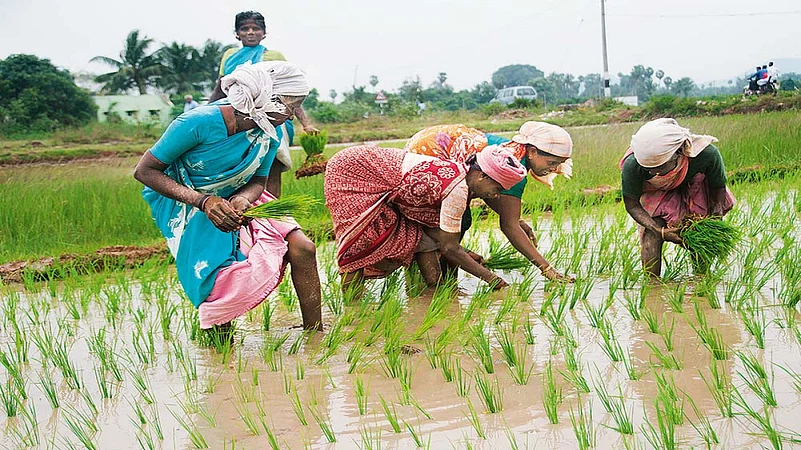India, a global agricultural powerhouse, is set to transform its farming sector through a new initiative aimed at financing climate resilience technologies. Despite employing over half of the country’s workforce, agriculture contributes just 20.2 percent to India’s GDP, according to the Indian Economic Survey 2020-21. To improve food security and global competitiveness, India must tackle food wastage, enhance infrastructure, and adopt advanced agricultural technologies.
A major challenge is the financing of agriculture. Small and marginal farmers often face barriers to formal credit, relying instead on informal lenders with high interest rates, which traps them in a cycle of debt. Addressing this issue requires innovative financial solutions and collaborative efforts.
Advertisement
The Sustain Plus Energy Foundation (SPEF) and Deutsche Gesellschaft für Internationale Zusammenarbeit (GIZ) have partnered to address this gap. Their joint initiative, “Financing Technologies for Climate Resilience in Agriculture,” aligns with broader climate adaptation strategies and underscores a commitment to sustainability. This programme, supported by LoanXpress, aims to provide accessible credit to promote climate-smart agricultural practices.
Key to this initiative are technologies that enhance agricultural resilience. For instance, Solar Irrigation Systems with Drip and Mulch use solar power to irrigate crops efficiently, conserving water and improving yields. Biodigesters convert animal waste into biogas and organic fertiliser, supporting sustainable farming. Portable Solar Pumps provide access to remote water sources, crucial for adapting to variable water availability. Net House nurseries protect crops and enable year-round cultivation, offering promising returns within two years.
Advertisement
Other technologies include solar-powered poultry lights, solar-powered hydroponics cattle nutrient producers, and bio-inputs like hydrogel and non-toxic animal repellant, all of which improve farming efficiency and sustainability.
These technologies, showcased by Sa Dhan, involve collaboration with manufacturers and financial institutions to support their adoption across agricultural communities. By reducing carbon footprints, conserving resources, and lowering operational costs, they offer significant benefits for farmers, enhancing their income through improved yields.
Financial institutions are recognising the value of sustainability programmes, presenting a significant opportunity for further investment in this sector. By providing subsidised loans to underserved farmers, this initiative not only supports economic growth but also strengthens India’s agricultural resilience and sustainability.
This strategic partnership and the implementation of climate-smart technologies mark a crucial step towards boosting agricultural productivity and promoting sustainable practices. As India advances its role in global agriculture, such initiatives pave the way for a resilient and prosperous future for its farming communities.















 Just one email a week
Just one email a week